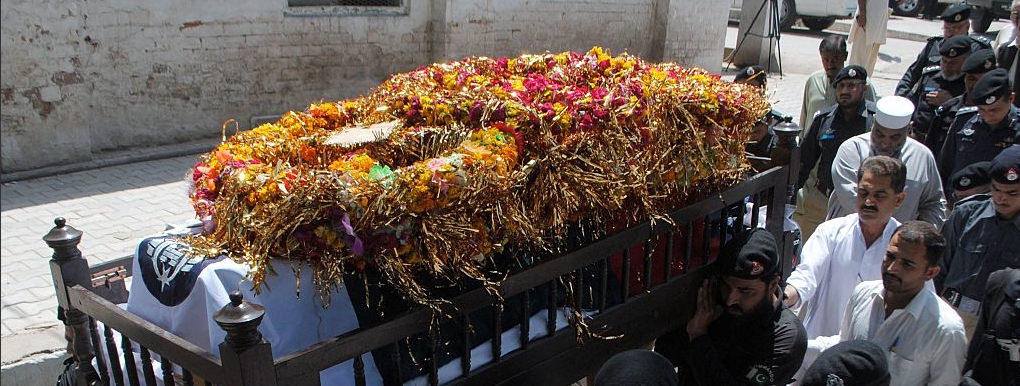
Private morality compels many students of International Politics to discard the Realist theory of international relations. It is viewed as vile and excessively negative. A little insight in the works of leading realist thinkers such as Thucydides, Hobbes and Machiavelli would help in deconstructing this initial view of realism. It does offer a pessimistic view of human nature, state structure and global order but it would be unjust to term it as an idea devoid of normative considerations.
When Machiavelli says that the rulers have to be both lions and foxes, he tends to imply the heavy responsibility of state survival and welfare of the citizenry that lies solely with the ruler. Machiavelli and other classical realists advocate the pursuit of coercive policies abroad in order to protect national interests that are thought to be directly linked with the welfare of a state’s citizens. An interesting dimension of this strategy to serve people relates to its exclusivity – because every state must protect itself at the cost of another state’s well-being. This idea of statecraft somehow justifies the prudence of aggression-centered foreign policies if they set to bring domestic stability. Whether it is the creation of Mujahideen groups or financing secessionist movements, states often rely on the support of belligerent non-state actors in order to meet their foreign policy goals.
There is a wide variety of non-state actors, but in political jargon predominant in Pakistan, the term is often used to point towards terrorist groups. Whether Pakistan is a victim of spillover effects of terrorism or a country that helped in generating more terrorism is still a matter of debate among local scholars and politicians. The history of terrorism in the country is traced back to the Afghan Jihad, when it found itself vulnerable to communist expansion after the Soviet military had landed in Afghanistan in 1979.
Pakistan was not alone in dreading the Soviet threat, rather it found the US immersed in apprehensions too. President Jimmy Carter remarked in January 1980 that the uninterrupted flow of oil from the Gulf region to the West was in line with the vital interests of the US. He also warned that attempts by any force to capture the Persian Gulf region would be seen as a direct assault on important US interests, inviting strong repulsion and retaliation.
Apprehended by the Soviet military intrusion in Afghanistan, Pakistan and the US invested their finance and energy in creating Mujahideen groups to fight for the Afghan people against ‘atheistic’ communists. Given the geographical contiguity of Pakistan to Afghanistan and the fact that Iran at that time had a staunchly anti-US regime, Pakistan was chosen as the primary conduit for the supply of arms to Afghanistan, whereas the military adventure was heavily financed by the Central Intelligence Agency.
The jihad in Afghanistan was conducted through the support of the US and Pakistan by undesignated militant groups, once hailed as ‘freedom fighters’. However, today they are loathed at the state, societal, and international levels. The Afghan Jihad is not the only case where once-adored bedfellows came to be known as terrorists later on, rather, the examples are numerous.
When Saddam Hussain carried massive repression against the ethnic Kurds of Iraq, he was hailed as a leader bringing stability to the region by major powers. His regime was supported by the US and Britain after the Islamic Revolution in Iran. Powerful countries in the West and Middle East provided massive financial aid during Iraq’s eight years war with Iran. He was not condemned as a terrorist when his forces carried out rapes and widespread persecution against the Iraqi Kurds. The global community remained silent. Only after he annexed Kuwait in the face of domestic turbulence, economic collapse and regional politics came the moment when collective action was taken to harness his aggressive designs. Today, with Saddam dead, Iraq is half-way on the road to destruction and has also become a major hotbed for sprawling terrorist groups.
In the current scenario of global politics, the issue of terrorism has become a centerpiece of much academic work and policy formulation. The term ‘terrorism’ is ambiguous, but it is widely used to identify violent actions carried out against non-combatants. Normally, the state has leverage against terrorist groups because the former is authorized to use force, whereas the latter isn’t.
In a situation where the state itself creates and exploits militant groups, it should be equally held culpable in the disruption of global order. In several countries, anti-government groups stood up to take arms against the state due to their long-standing grievances and marginalization.
A state is ideally responsible for the welfare of its citizens but sometimes it is discriminatory and belligerent against certain groups residing within the state territory. The Pakistani province of Baluchistan presents a gruesome example of state terrorism, where enforced disappearances and discovery of mutilated bodies and mass graves has become a norm. There is an active armed resistance going on in Baluchistan against the government and the province is in the flames of terrorism.
The problem of terrorism is very complex and puzzling. It involves political and psychological reasons and considerations. Sadly, there seems to be no light at the end of tunnel when the matter of state terrorism arises.
***
Image: A Majeed-AFP, Getty